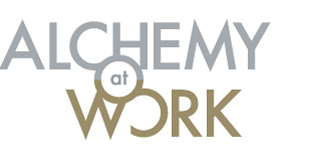A Gestalt perspective on business change
David from ‘Alchemy at Work’ transforms the way people co-operate and perform at work. As a trained and experienced group facilitator he enables teams, from the shop floor to senior management, to become more effective. He applies Gestalt and Humanistic principles to coaching, training and large-scale business change.
Here, he discusses the usefulness of a Gestalt approach:
“Are you taking the piss, you’re interested in what I think?” replies the manufacturing operator, when I ask him what he thinks the department’s priorities should be.
I have been invited by the departmental manager of a multinational chemical company to help ‘galvanise the manufacturing department around some clear priorities’.
It can be tempting to approach such a brief mechanistically, by conceptually breaking down the whole complex system into performing and non-performing parts, and then attempting to fix the ‘faulty’ ones, like replacing the components in a machine.
However, if you fail to take into account the whole system, there is a danger of fixing one problem only to create another elsewhere. Any human organisation is a complex system of different personal perspectives, feelings, agenda and occurrences. Through increased understanding of how these elements interact, managers will be able to make better informed decisions about setting priorities for the good of the business.
There are often blind spots in an organisation which, if overlooked, can lead to decisions being made without full awareness of the context in which those decisions are implemented. Clearly, if no-one bothers about the priorities set by the leaders, it becomes a pointless exercise.
 The Gestalt approach seeks to solve problems by inquiring into the interrelating elements. When a particular element within the whole appears to be crucial to the problem, it will be focused on, but not isolated.
The Gestalt approach seeks to solve problems by inquiring into the interrelating elements. When a particular element within the whole appears to be crucial to the problem, it will be focused on, but not isolated.
In using a Gestalt approach, I do not seek to fragment or simplify, but rather work with the whole field, with all its complexity: be it the whole organisation, whole group or whole person. In Gestalt, it is acknowledged that each person experiences their whole field and the current problem very differently. Thus, in an organisation there will be many perceived reasons for situations, and many valid answers to questions like ‘what should the priorities be for the next six months?’.
Which is why, when the manager of the chemical company asks me to help galvanise the department around some clear priorities, I suggest we study the broad picture to illuminate how all the different groups of people interconnect and influence one another.
There are a hundred people busily working night and day: they must already be working to priorities. How do those priorities fit into the overall scheme? How do the different groupings of people work together to galvanise the organisation? As for the physical place where people are working – what kind of environment is it? What about the things in it? What story does this all tell about the operation?
For example, talking to a group of operators, they describe a whole range of operational issues. I ask whether they have reported their concerns to their supervisor. They laugh and say they rarely see him, and when they do he doesn’t have the time. I talk with one of the supervisors, who says he spends all his time solving problems to hit production demands. During the conversation, I ask whether he’s noticed the wooden box in the corridor (which contravenes manufacturing regulations). He says they ‘used to have a system of regular area inspections, but these have been stopped to hit increased production requirements’. I get the sense of someone who feels victim to the current circumstances and who feels unable to change anything.
Later on, having analysed the gathered information with the departmental manager, and agreed next steps, we conduct a workshop with the management team.
The workshop helps the managers understand the impact of their decisions in a broader context. Managers who had been angry with people for not doing what the managers wanted, are able see things from other points of view.
Being able to see the broad view helps the management team rethink their role within the whole system. Not only do they modify the departmental priorities, but also their management style, becoming less reactive and more able to build commitment across the department. This is critical for the successful implementation of the business goals.
 Be conscious that blind spots may exist.
Be conscious that blind spots may exist.
Stop and think how best to gain new perspective on the situation, how to achieve that deep awareness of the whole system that allows you to ultimately make more informed and more effective decisions.
In conclusion, beware of taking a narrow view, especially when things get difficult. When the pressure builds, we may tend to focus on delivering tasks, and the more urgent the task becomes, the harder it is to step back and take the time to see the big picture.
David has published an article reflecting in more detail on this work assignment.
Interested in this approach to help transform your team/organisation/business?
Please e-mail david@alchemyatwork.com
